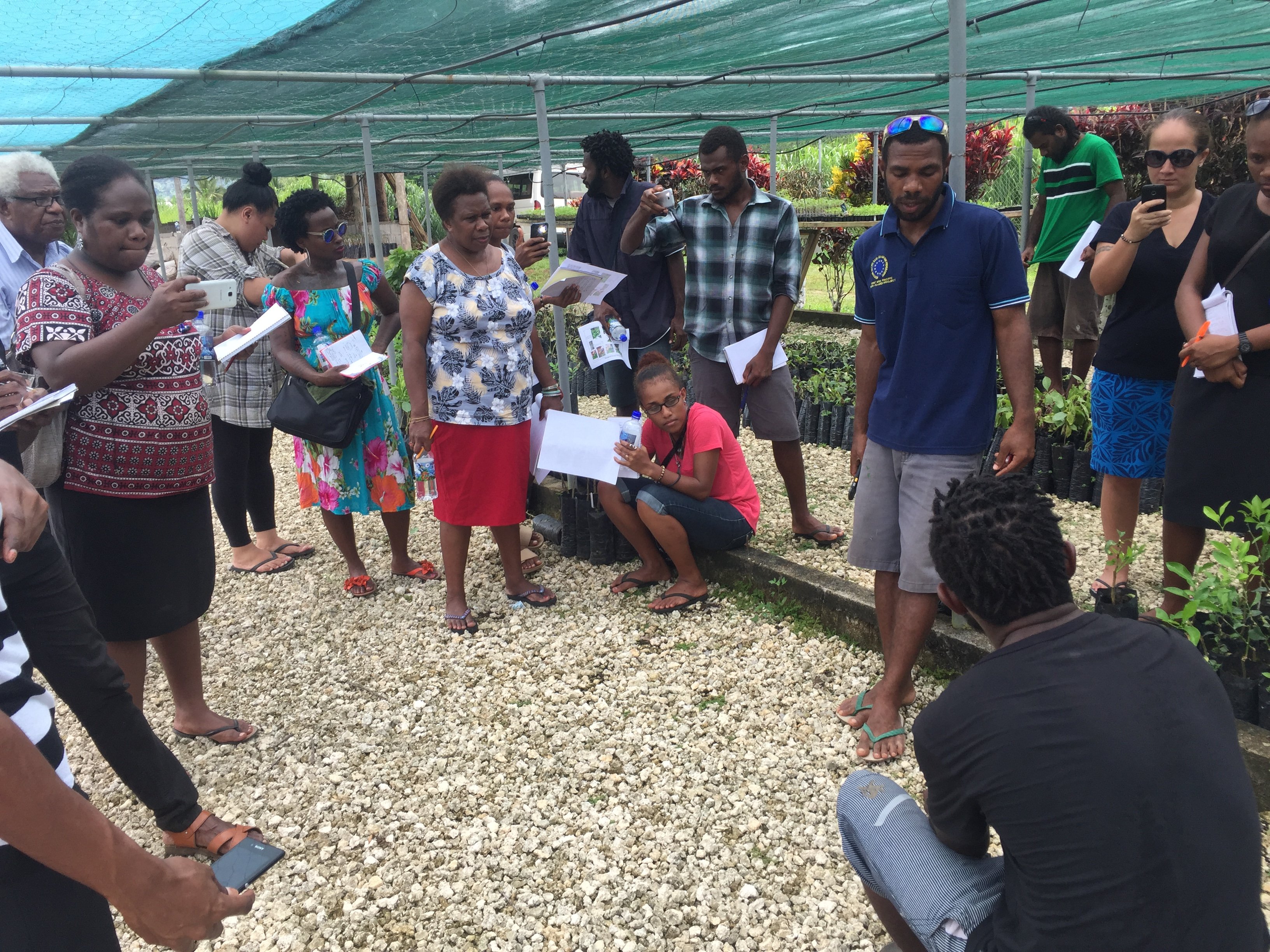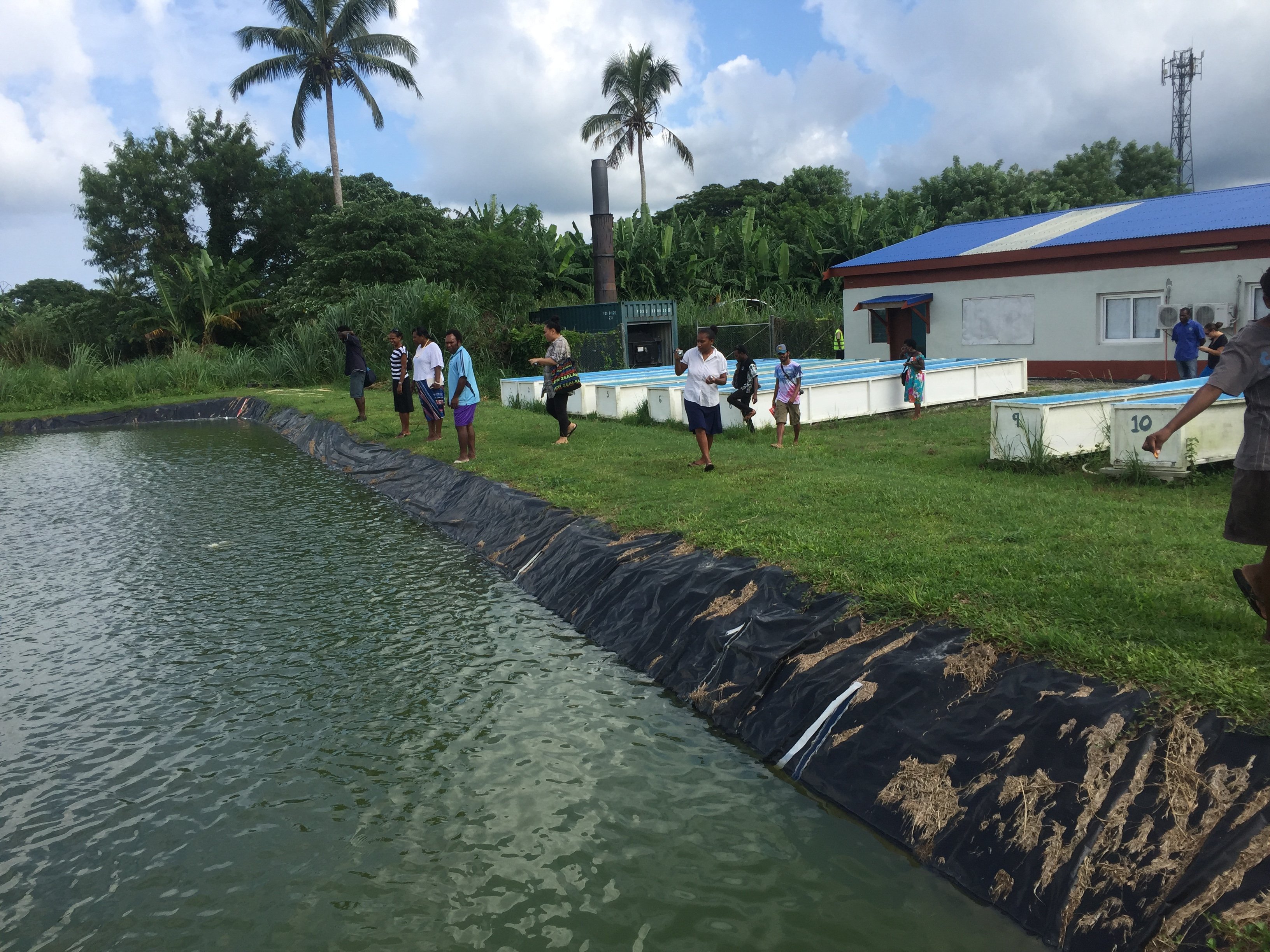Members of the Media Association of Vanuatu are attending a Climate Change Journalism Workshop at the Vanuatu Meteorologocal &a Geo-Hazards Department (VMGD) Conference Centre from the 28th to 30 of March that is being facilitated by Internews’ Earth Journalism Network.
The Earth Journalism Network (EJN) is an organisation that establishes networks of environmental journalists in countries where they don’t exist, and builds their capacity where they do.
Two EJN Officers are currently in Vanuatu to empower and upskill local journalists to effectively report on the effects of Climate Change in Vanuatu and to provide information for community resilience. Climate change is a big issue in Vanuatu today. Over the years, natural and man-made hazards have caused havoc on coastal and inland ecosystems throughout the islands of Vanuatu, and sea level rise is a major threat in low lying areas.
As a result, the livelihoods of the people are being affected in different ways. For instance, in Takara village on the island of Efate, village chief Benjamin Tamata said, “I want to move the village of about 200 people inland by about 300 meters (1,000 feet) to move away from the rising seas and to avoid future storm surges.”
In 2005, over 100 islanders of Tegua Island in Torba Province in Vanuatu’s north had to move inland after sea level rise contributed to flooding that damaged their houses and properties. Unfortunately, this trend is “projected to continue”, according to a research essay by Ecological Economic Masters holder Andrew Gray, who reports that “the south-western Pacific will expect to experience a regional temperature rise of 2°C by 2050.”
 Fortunately, in 2013 the Government of Vanuatu officially recognized the threats posed by climate change by establishing the Ministry of Climate Change “as part of efforts to streamline Vanuatu’s climate change response”. And there is more progress in structural sector development as reported by the Director of the Climate Change Division under the VMGD Mr. David Gibson: “We are planning to establish the Department of Climate Change in 2017,” he said.
Fortunately, in 2013 the Government of Vanuatu officially recognized the threats posed by climate change by establishing the Ministry of Climate Change “as part of efforts to streamline Vanuatu’s climate change response”. And there is more progress in structural sector development as reported by the Director of the Climate Change Division under the VMGD Mr. David Gibson: “We are planning to establish the Department of Climate Change in 2017,” he said.
This means that there would be more mandated national resources and capacity focused on targeting Climate Change issues in Vanuatu than before.
Overall, there is a need for wider advocacy on climate change, and mainstream media should be at the forefront of this campaign because “the people follow the Media, they listen to us” said the President of the Pacific Islands News Association Mr. Moses Stevens at the Climate Change Journalism Workshop in Port Vila.
“Poor people tend to be the most vulnerable to climate change and other environmental issues because they simply don’t have as many resources to build resilience,” said James Fahn, who is the Executive Director of the Earth Journalism Network to the attending Journalists, Journalism Students and participating Media Officers from NGO’S. “They are the ones who need the most assistance and information.”
The workshop will include a field trip and several more sessions before it concludes on the 30th.




